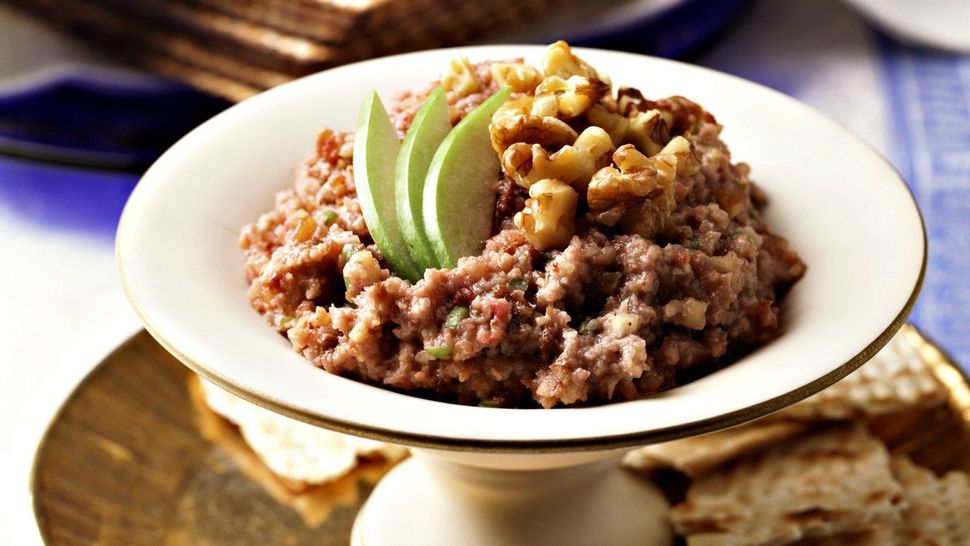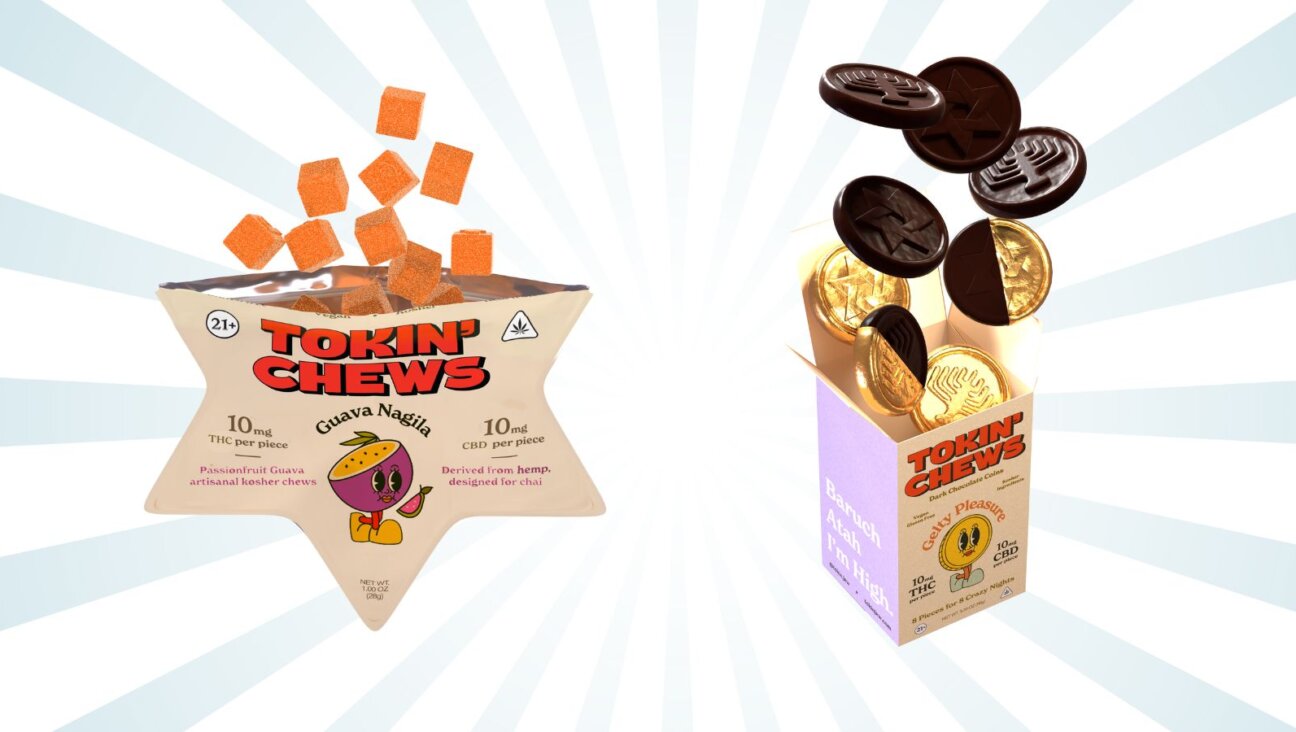Mimi Sheraton Says Charoset Is Not Just For Pesach Anymore

Charoset from “1,000 Foods to Eat Before You Die” (Workman Publishing) Image by Brian Hagiwara/Getty Images
Although it stands as a symbolic reminder of the mortar used by the Jewish slaves who built the pyramids in Egypt, the fragrant spread called charoset deserves more than a once-a-year ritual appearance at the Passover Seder table.
Related
The rich fruit spread is made in two lovely versions, delectable either for breakfast or tea-time on toasted English muffins, matzos or firm, lightly sweetened, toasted pound cake. The Ashkenazic standard is a chopped blend of tart, juicy apples, walnuts, red kosher-style sweet wine, sugar, cinnamon and powdered ginger. Macintosh apples are the perfect choice with Macouns as good stand-ins.
Sephardic Jews prepare a richer, midnight-dark mix, chopping dried fruits such as dates, raisins and figs with walnuts or pistachios, and simmering the lot in wine and spices such as cinnamon and cloves. Both types ripen to maximum flavor when prepared in advance and chilled for twenty-four hours before serving. The Ashkenazic version, if refrigerated, will keep for three days, while the Sephardic will keep for several weeks.
Tip: For Ashkenazic charoset, the fortified red aperitif wine Dubonnet is a good substitute for kosher sweet wine.
Charoset Recipes From The Forward
Mimi Sheraton is an award-winning cookbook author and former restaurant critic for the New York Times.
Essay excerpted from “1,000 Foods to Eat Before You Die: A Food Lover’s Life List,” © 2014 by Mimi Sheraton. Used by permission of Workman Publishing Co., Inc., New York. All Rights Reserved.
A message from our Publisher & CEO Rachel Fishman Feddersen

I hope you appreciated this article. Before you go, I’d like to ask you to please support the Forward’s award-winning, nonprofit journalism so that we can be prepared for whatever news 2025 brings.
At a time when other newsrooms are closing or cutting back, the Forward has removed its paywall and invested additional resources to report on the ground from Israel and around the U.S. on the impact of the war, rising antisemitism and polarized discourse.
Readers like you make it all possible. Support our work by becoming a Forward Member and connect with our journalism and your community.
— Rachel Fishman Feddersen, Publisher and CEO





























